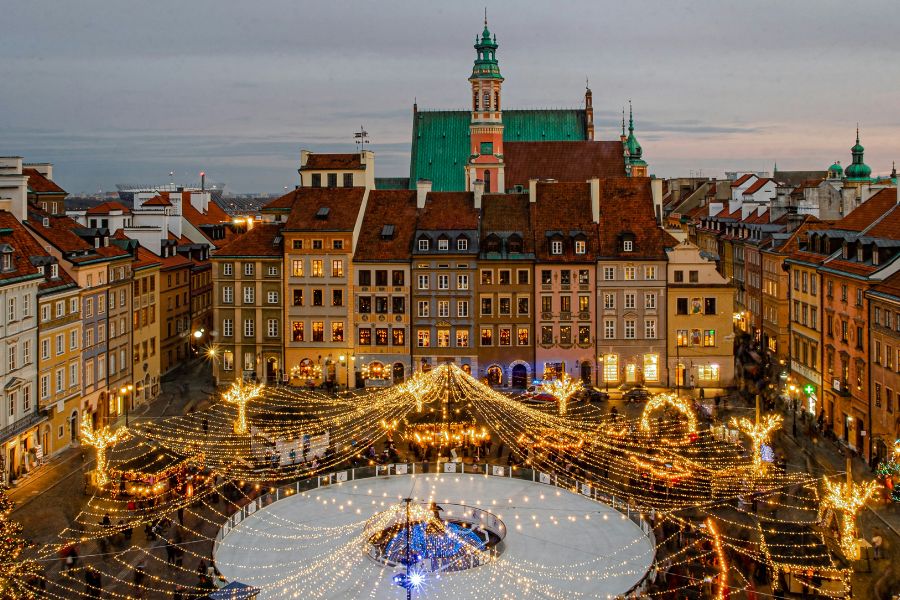Poland has quietly become one of Europe’s most attractive destinations for foreign professionals, especially from Asia, Africa, and Eastern Europe, who seek affordable living, strong job markets, and a direct route into the European Union. Over the past decade, the country’s growing industries, from IT to manufacturing, have created thousands of openings for skilled workers. But the big question remains is, can your Polish work visa eventually lead to permanent residency? The answer is yes if you know how to navigate Poland’s multi-step process with care and consistency.
Key Takeaways
The Role of a Work Visa in Poland’s Immigration System
Poland operates on a visa-to-residence model, where non-EU nationals first enter with a national visa (Type D) or a temporary residence permit for work. This allows them to stay in the country for longer than 90 days and legally work for a specific employer. The work permit itself is issued by the Voivode Office (regional governor’s office) and is usually valid for up to three years, depending on the employment contract.
However, holding a work visa or permit doesn’t automatically give you long-term rights. What it does is start your clock toward permanent residency, provided you maintain lawful, continuous residence and employment.
Different Types of Work Permits in Poland
Poland offers several categories of work permits, each suited to specific employment situations. The most common are:
- Type A – For foreigners employed by a Polish-registered company.
- Type B – For individuals serving on a company’s board for over six months within a year.
- Type C and D – For intra-company transferees coming from foreign branches.
- Type E – For other unique employment cases not covered by previous types.
Among these, Type A is the most typical for full-time employees. While these permits tie you to a specific employer, once you’ve lived and worked continuously in Poland, you can start working toward a permanent residence permit (zezwolenie na pobyt stały).
Who Can Apply for a Work-Based Residence Permit
To get a work-based temporary residence permit, applicants must prove that they have a valid employment contract, sufficient income, and legal accommodation in Poland. Your employer often helps initiate the process by applying for your work permit before you apply for a residence permit.
Language skills are not mandatory for this stage, but maintaining compliance with Polish labor and tax laws is crucial. The permit usually allows family reunification, meaning your spouse and children can apply for dependent residence permits once your own is approved.
From Temporary to Permanent Residency
Poland’s immigration framework is time-based and favors long-term residents who contribute to the economy. In most cases, five years of continuous legal stay in Poland under a temporary residence permit (based on work, family, or study) makes you eligible to apply for permanent residency.

This period can include multiple renewed permits, as long as there’s no major break in your residence. For example, leaving Poland for several months without maintaining a valid permit can restart your eligibility clock.
Once eligible, you can apply for a Permanent Residence Card, which gives you indefinite stay rights, access to nearly all social and employment benefits, and the ability to travel freely within the Schengen Zone.
Applying for Permanent Residence in Poland
The application is submitted to the Voivodeship Office in the region where you live. Required documents typically include a valid passport, proof of residence, employment contracts, tax payment history, and sometimes proof of language proficiency (though not always mandatory).
Processing times can vary widely from a few months to nearly a year, depending on the office’s workload. Once approved, the Permanent Residence Card (Karta Stałego Pobytu) is issued, generally valid for ten years and renewable automatically.
How Long Does it Really Take
While the legal requirement is five years of stay, in practice, many workers need closer to six or seven years to meet all the conditions, especially if their initial visas were short-term or if they switched employers. The path is steady but slow, reflecting Poland’s emphasis on consistency and economic contribution rather than speed.
For those with Polish ancestry, long-term EU residence status, or marriage to a Polish citizen, the timeline may be shorter.
Common Pitfalls Applicants Face
The biggest obstacle for most foreign workers is failing to maintain continuous legal residence. Missing a permit renewal deadline, working for an unauthorized employer, or failing to update your residence address can all cause delays or rejections.
Also Read: How to Get Permanent Residency in Poland
Another issue is incomplete paperwork. Poland’s immigration offices are strict about translations, apostilles, and certified copies. Applicants are advised to keep every document from day one, including employment records, tax certificates, and rent contracts, to avoid unnecessary hurdles when applying for PR status.
Why Permanent Residency in Poland Is Worth the Wait
Earning permanent residency in Poland means unlocking the freedom to work without a permit, start a business, and access healthcare and education under the same terms as Polish citizens. It also allows you to move freely within the Schengen Area for short stays, making Poland an excellent base for broader European opportunities.
Given Poland’s growing economy and strategic location between Western and Eastern Europe, permanent residency here offers not just stability but also a long-term springboard into the EU’s economic and social network.
Conclusion
Getting permanent residency in Poland through a work visa isn’t fast, but it’s certainly possible and increasingly common among foreign professionals. The system rewards stability. Those who keep their jobs, follow the rules, and maintain legal residence can expect a clear path to long-term settlement.
Poland might not offer instant PR, but it does promise a reliable route for those willing to invest time, effort, and commitment into their professional life in one of Europe’s most dynamic and affordable countries.
Reference: https://migrant.info.pl/en/Prolongation_of_a_visa_in_Poland





